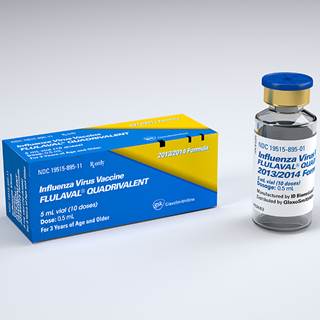
The U.S. Food and Drug Administration has cited a GlaxoSmithKline Plc plant in Canada that makes the flu vaccine Flulaval for failing to meet quality control standards. The FDA said in a June 12th warning letter that the facility, located in Ste-Foy, Quebec, did not take the proper measures to stop products from being contaminated […]
 The U.S. Food and Drug Administration has cited a GlaxoSmithKline Plc plant in Canada that makes the flu vaccine Flulaval for failing to meet quality control standards. The FDA said in a June 12th warning letter that the facility, located in Ste-Foy, Quebec, did not take the proper measures to stop products from being contaminated with bacteria, Reuters reports.
The U.S. Food and Drug Administration has cited a GlaxoSmithKline Plc plant in Canada that makes the flu vaccine Flulaval for failing to meet quality control standards. The FDA said in a June 12th warning letter that the facility, located in Ste-Foy, Quebec, did not take the proper measures to stop products from being contaminated with bacteria, Reuters reports.
The agency said that GSK had inadequate controls for the purified water system at the plant. As a result, equipment had been washed with water containing gram-negative bacteria implicated in product contamination issues at the facility as early as 2011. There was no timeline for disinfecting the water system and current manufacturing controls are unable to stop bacterial contamination on unsterilized surfaces, the FDA said.
Several lots of GSK vaccines have been rejected in recent years. According to Reuters, 24 vaccine lots were rejected in 2011. The lots were discarded due to the excessive presence of endotoxins, which are found in the cell walls of gram-negative bacteria such as salmonella. These endotoxins are released when the bacteria die, possibly tainting laboratory equipment and resulting in health problems in humans and animals.
Reuters reports that lots were also rejected in March and July of 2012, and certain lots were also contaminated last year. The FDA said in its warning letter that these rejected vaccines were manufactured on the same equipment as commercial lots for release in the US.
This year, bacterial growth was found in 20 lots, or 21 percent, of vaccines; they were all discarded as part of GSK’s quality review process, the company said.
The FDA said in its letter that the inadequacies “are an indication of your quality control unit not fulfilling its responsibility to assure the identity, strength, quality, and purity of your licensed biological drug product and intermediates.”
More vaccine-related cases:


